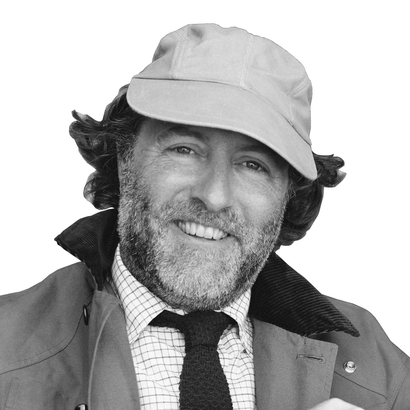Ken Aretsky, natty in a bespoke suit, trim beard, and elegant eyeglasses, greets his guests with the ease of a man who knows his place in the world. His place, as it happens, really is his place—Aretsky’s Patroon, on East 46th Street—where he’s been circulating through a dining room full of power players for nearly 30 years.
The history of dining in New York is not just the history of food but also of business, media, celebrity, and real estate. And Aretsky’s path intersects with them all. “I’ve been working in restaurants for five decades,” Aretsky says. That’s a lot of mayors, Yankees managers, and dining trends.


